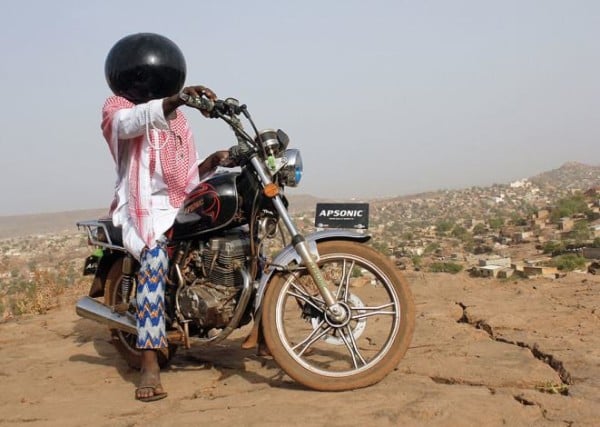
After a forced four year hiatus due to political instability and war, the African Biennale of Photography Bamako Encounters—one of Africa’s key cultural events—is back for its 10th edition.
Under the directorship of Nigerian star curator Bisi Silva, founder of the Center for Contemporary Art, Lagos and international jury member of the 2013 Venice Biennale, organizers hope that the event can regain its place at the pinnacle of the continent’s vibrant cultural scene.
A record 800 applications from photographers representing 54 African counties and the diaspora have been submitted to the festival whose theme this year.
“Telling Time” is the title of the main curated show hosted by the National Museum of Mali, in the country’s capital Bamako, which includes over 100 artists from 20 countries.
The Nigerian curator Bisi Silva was appointed director of the 10th Edition of Bamako Encounters.
Photo: artrubic.com
Speaking on the biennial’s theme of time and temporality, Silva told the New York Times, “My starting point for the Encounters was to look at the Malian insurrection as part of the continent’s present, and see how photographers tell its story.”
Aboubacar Traoré’s Inch’Allah series (2015) for instance depicts subjects wearing a large black sphere on their heads. The photographer explains the images represent how religious ideology blinds people. “With that on your head, you can’t think and you can’t see, you are bound to kill yourself and other people,” he said.
When radical islamists took over northern Mali in 2012 they quickly implemented a ban on television and music. “I don’t think they mentioned photography specifically, but they banned any representation of reality that is not by God,” Traoré explained.
The show also includes works by Mozambican Filipe Branquinho, Kenyan Mimi Cherono Ng’ok and a video by Turner Prize nominees The Otolith Group, founded by Anjalika Sagar and Kodwo Eshun in London in 2002.
The main exhibition takes place at Bamako’s National Museum of Mali.
Photo: Erwin Bolwidt via Flickr
Founded in 1994 and backed by Mali’s Ministry of Culture and the Institute Français, the majority of funding for the biennale still comes from overseas.
“Our leaders need to understand that spending money on culture is crucial,” Samuel Sidibé, delegate general of Bamako Encounters told the NYT.
Simon Njami, who organized the past four Biennales agreed. “People are intimidated, they don’t go to the museum naturally,” he said. However initiative like ‘100 Schools’—which invites 10,000 local schoolchildren to attend the exhibitions—are slowly changing this.
But there’s still a long way to go, “It’s great to build hospitals, but you also need to educate people and help them understand multiple identities can exist,” Sidibé said.